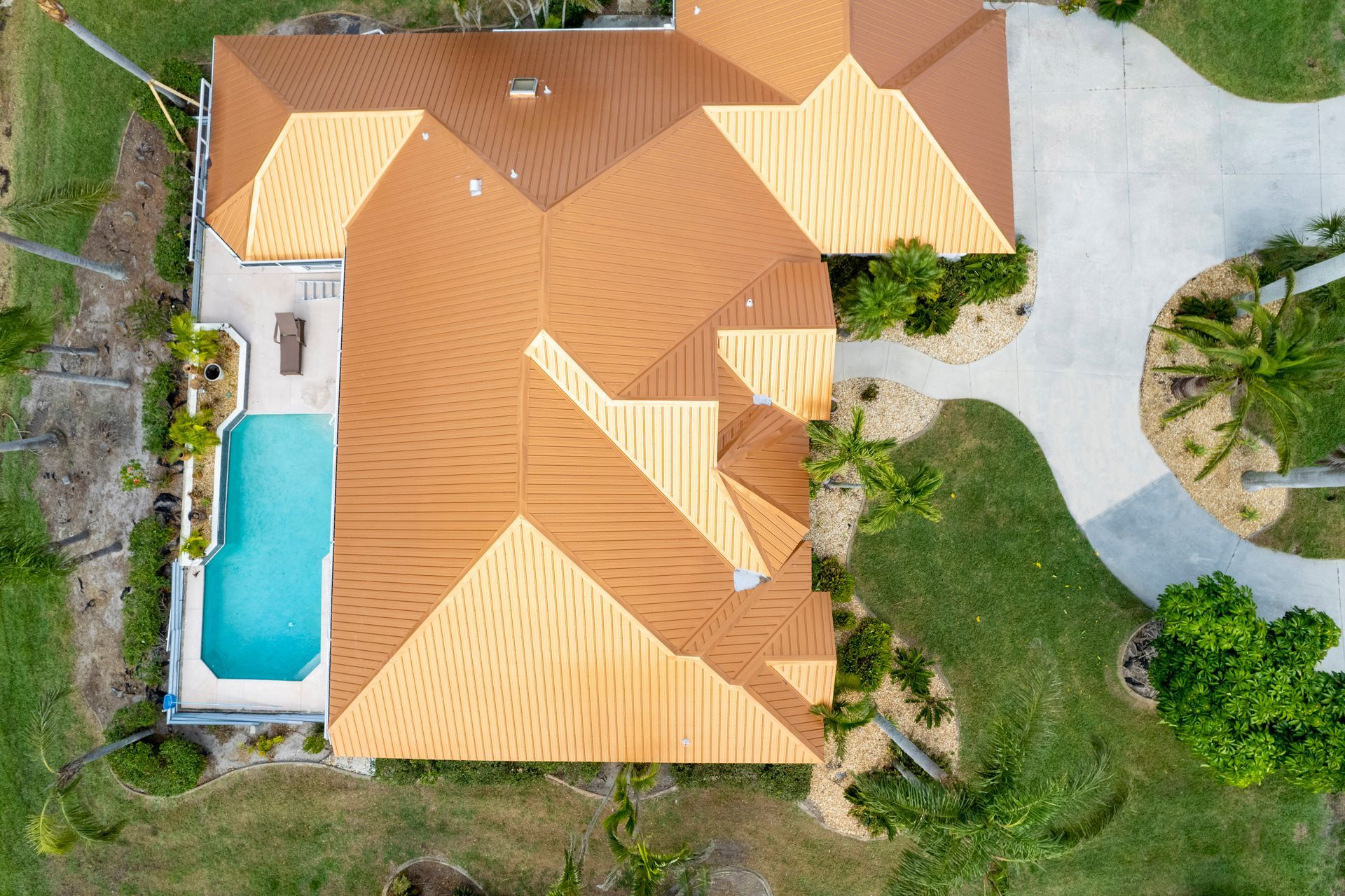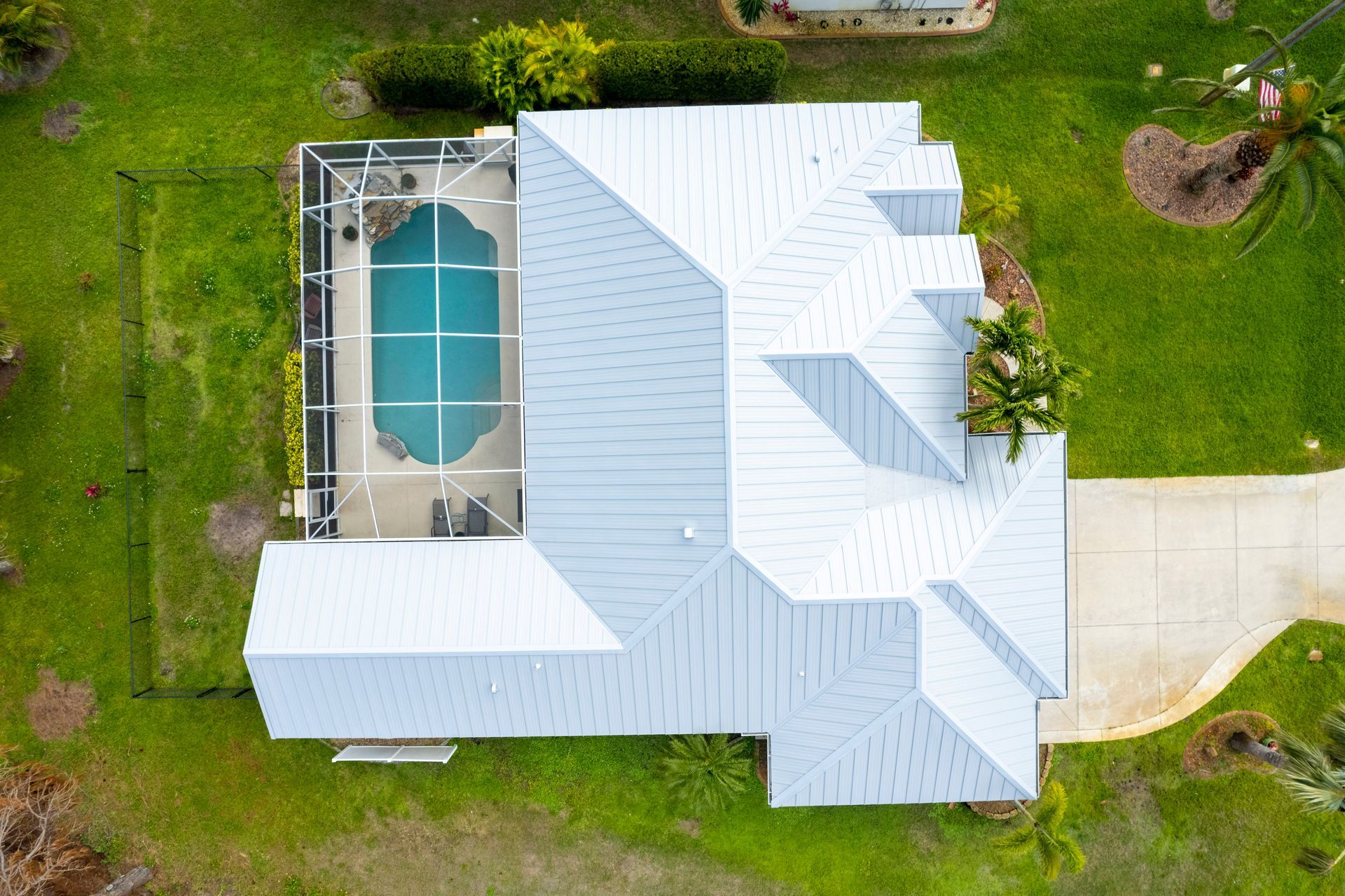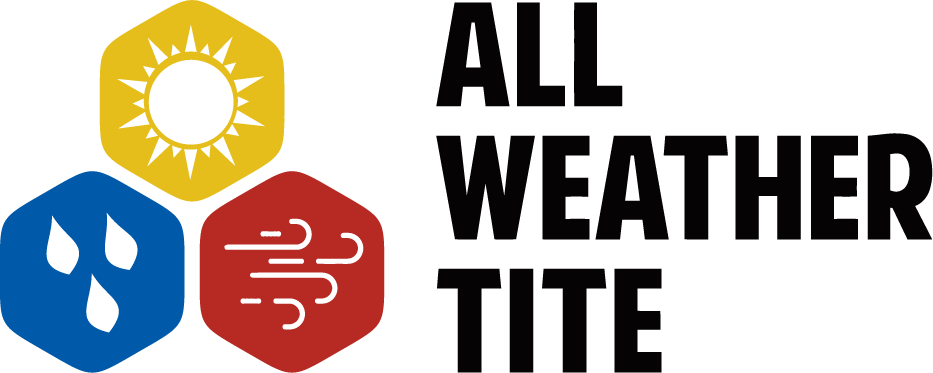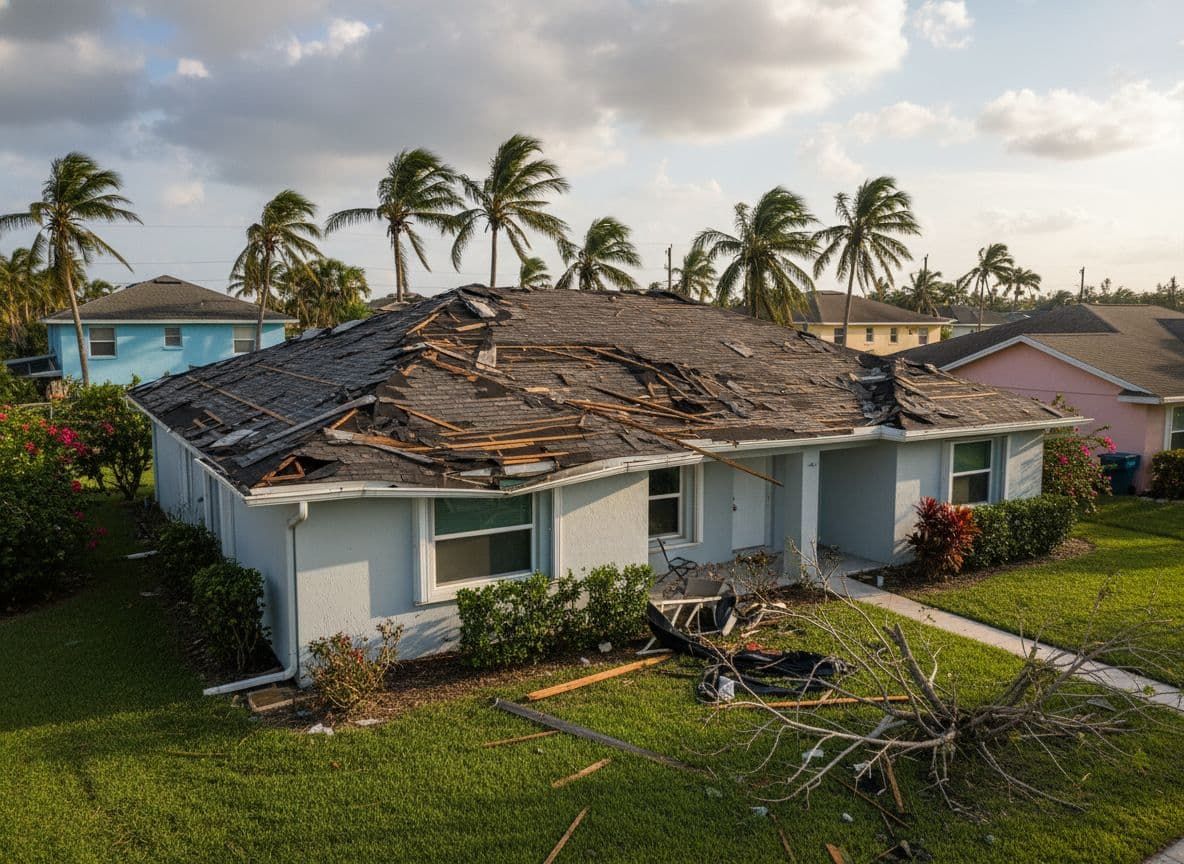What to Expect During a Professional Roof Inspection in Ft. Lauderdale
Introduction
Ft. Lauderdale's tropical climate poses unique challenges for roofing systems, making professional inspections a necessity rather than an option. With intense heat, heavy rain, and hurricane-force winds being common occurrences, roofs in this region face constant wear and tear. These conditions can lead to premature aging of roofing materials, leaks, and even structural damage if not addressed promptly. This is why homeowners and property managers must prioritize regular roof inspections to ensure their properties remain safe and functional.
Professional roof inspections are essential because they catch problems early before they escalate into costly repairs or replacements. In a place like Ft. Lauderdale, where weather extremes are the norm, delaying maintenance can result in significant damage that compromises the integrity of your home or business. By staying proactive with inspections, you protect your investment and avoid unnecessary headaches down the road.
Why Roof Inspections Matter in Ft. Lauderdale
Regular roof inspections play a critical role in safeguarding your property against harsh weather conditions typical of South Florida. Hurricanes, torrential rains, and high humidity levels can wreak havoc on roofing systems, causing everything from minor leaks to severe structural issues. Inspections help identify vulnerabilities so they can be repaired before storms strike, ensuring your roof is ready to withstand whatever Mother Nature throws its way.
Beyond weather protection, routine inspections extend the lifespan of your roof by addressing small problems before they become big ones. Neglecting maintenance often leads to expensive repairs or even full replacements, which could have been avoided with timely intervention. Additionally, many insurance providers require periodic inspections to maintain coverage, making them not only a smart choice but sometimes a mandatory one as well.
What Does a Professional Roof Inspection Include?
A thorough roof inspection involves both exterior and interior assessments to evaluate the overall condition of your roofing system. On the outside, inspectors check for damaged or missing shingles , cracked tiles , loose flashing, clogged gutters, and compromised sealants. Inside, they examine the attic for signs of water intrusion, mold growth, insulation damage, and other hidden issues that may indicate underlying problems. This comprehensive approach ensures no potential issue goes unnoticed.
To enhance accuracy, inspectors often use advanced tools such as thermal imaging cameras, drones, and moisture meters. Thermal imaging detects temperature variations that might signal water leaks or insulation gaps, while drones provide close-up views of hard-to-reach areas. Moisture meters measure dampness levels in materials, helping pinpoint active leaks. These technologies allow inspectors to deliver more precise assessments, giving homeowners peace of mind about their findings.
After completing the inspection, homeowners receive detailed documentation outlining the results. This typically includes a written report with descriptions of observed issues, digital photos highlighting problem areas, and recommendations for necessary repairs. The report also assigns severity ratings to each issue, helping prioritize actions and providing valuable information for insurance claims if needed.
How Long Does a Roof Inspection Take?
A standard roof inspection usually takes between one to three hours, depending on several factors. Larger roofs or those with complex designs may require additional time, as will properties with limited accessibility. Weather conditions also play a role; clear skies make it easier for inspectors to perform a thorough assessment compared to rainy or windy days when safety becomes a concern.
Steps Involved in the Inspection Process
Pre-Inspection Preparation
Before the inspector arrives, there are a few steps property owners can take to facilitate a smooth process. Ensure easy access to the roof by clearing any obstructions like ladders or outdoor furniture. Remove debris such as leaves or branches from gutters and around the perimeter of the house. Scheduling the inspection during dry weather is ideal since rain can limit visibility and create slippery surfaces.
Exterior Assessment
The exterior portion of the inspection focuses on the visible components of the roof, including the surface material , flashings, gutters, and drainage systems. Inspectors look for signs of wear and tear, such as cracked or missing tiles, rusted metal parts , and blocked downspouts. They also assess the condition of rooftop equipment like vents and chimneys, checking for secure attachments and proper functioning.
In addition to general wear, inspectors pay special attention to storm-related damage. High winds can loosen shingles or tiles, while hail may leave dents or fractures. Ridge and hip caps—the protective coverings at the peaks of the roof—are inspected for stability, as these areas are particularly vulnerable to wind uplift. Identifying and addressing these issues early helps prevent further deterioration and costly repairs later on.
Interior Assessment
Inside the home, inspectors focus on the attic area to detect any signs of water intrusion, mold growth, or insulation problems. Dark stains on ceilings or walls, musty odors, and sagging materials are red flags that indicate leaks or poor ventilation. Addressing these issues promptly is crucial, as prolonged exposure to moisture can compromise structural integrity and lead to health hazards.
Common Issues Found During Ft. Lauderdale Roof Inspections
Roof inspections in Ft. Lauderdale frequently uncover issues such as cracked or damaged tiles, deteriorated sealants, clogged gutters, and loose flashing. Moisture intrusion is another common problem, often caused by improperly sealed joints or worn-out materials. Structural weaknesses, pest infestations, and corrosion of metal components are also regularly identified during inspections. These problems tend to worsen over time if left unaddressed, leading to more extensive and costly repairs.
Florida’s hot and humid climate exacerbates these issues, accelerating the breakdown of roofing materials. Prolonged sun exposure causes shingles and tiles to become brittle, while frequent rainstorms test the durability of gutters and flashing. Hurricanes bring additional stress, subjecting roofs to extreme wind pressures that can dislodge even seemingly secure elements. Understanding these risks underscores the importance of regular inspections tailored to the region’s unique environmental challenges.
How Inspectors Communicate Findings
Inspectors communicate their findings through a detailed report that includes a summary of observations, digital photos, recommended repairs, and severity ratings for each issue. This document serves as a roadmap for addressing problems and provides supporting evidence for insurance claims. Homeowners appreciate the clarity and transparency of these reports, which empower them to make informed decisions about their roofing needs.
What Happens After Your Roof Inspection?
Once the inspection is complete, the inspector will review the findings with you and explain the next steps. Depending on the severity of the issues identified, you may need immediate repairs or scheduled maintenance. For larger projects, follow-up inspections are often recommended to ensure work has been completed correctly. If repairs are covered by insurance, the inspector’s report will serve as key documentation to support your claim.
When seeking repair quotes, it’s wise to consult multiple contractors to compare prices and services. Always verify credentials, licenses, and references to ensure you’re hiring a reputable professional. Working with someone familiar with South Florida’s building codes and weather challenges is especially important, as local expertise ensures compliance and long-lasting results.
Roof Inspections vs. Roof Certifications
While both involve evaluating a roof’s condition, a standard inspection and a certification serve different purposes. A roof inspection identifies current issues and recommends repairs, offering a snapshot of the roof’s health. In contrast, a certification provides a formal assessment of the roof’s overall condition, often required for real estate transactions or insurance policies. Certifications typically include a guarantee that the roof meets specific standards and is expected to last a certain number of years.
In Ft. Lauderdale, certifications are particularly important when selling a property or renewing an insurance policy. Insurance companies often mandate certifications to confirm the roof’s viability and reduce liability risks. Understanding the distinction between these two processes helps homeowners navigate requirements effectively and choose the right service for their needs.
How Often Should You Get a Roof Inspection?
For optimal performance and longevity, roofs should generally be inspected every one to two years, depending on age, material, and environmental factors. Newer roofs may require less frequent checks, while older ones benefit from annual inspections. Additionally, inspections are strongly advised after major weather events, such as hurricanes or hailstorms, to assess potential damage and prevent further issues.
Choosing the Right Roof Inspector in Ft. Lauderdale
Selecting the right roof inspector starts with verifying qualifications, licenses, and experience. Look for professionals who hold relevant certifications and have a proven track record in the industry. Reading customer reviews and asking for references can provide insight into their reliability and quality of work. It’s also beneficial to choose someone who specializes in residential or commercial properties similar to yours.
Hiring a specialist familiar with South Florida’s unique building codes and weather patterns is crucial. Local experts understand the specific challenges posed by the region’s climate and can offer tailored advice and solutions. Their knowledge ensures inspections are thorough and recommendations are practical, ultimately saving you time and money in the long run.
Cost of a Professional Roof Inspection in Ft. Lauderdale
The cost of a professional roof inspection in Ft. Lauderdale typically ranges from $150 to $500, depending on the size and complexity of the roof. Standard inspections include a full assessment of both exterior and interior components, along with a detailed report. Some companies offer free inspections as part of promotional deals or when repairs are subsequently commissioned, so it’s worth inquiring about available options.
FAQ: Top Questions About Roof Inspections in Ft. Lauderdale
How do I know if I need a roof inspection?
If you notice visible warning signs like leaks, sagging sections, or missing shingles, it’s time to schedule an inspection. Even without obvious symptoms, routine inspections every one to two years—or after major storms—are highly recommended to catch hidden issues early. Proactive maintenance prevents small problems from escalating into costly repairs.
Are roof inspections required for insurance claims in Florida?
In many cases, yes. Insurance companies often require a recent roof inspection report to process claims related to storm damage or other incidents. The report provides documented evidence of the roof’s condition, helping insurers determine the extent of coverage and allocate resources appropriately. Having an up-to-date inspection can streamline the claims process significantly.
What should I do before the inspector arrives?
To prepare for the inspection, ensure easy access to the roof by clearing obstacles like furniture or landscaping. Remove debris from gutters and around the property to give the inspector a clear view of all areas. If you have pets, keep them indoors to avoid distractions. Scheduling the appointment during favorable weather conditions is also advisable for a more accurate assessment.
Can I stay home during the inspection?
While your presence isn’t strictly required, staying home can be helpful if you want to ask questions or gain insights directly from the inspector. If you prefer not to be present, simply ensure the inspector has access to all necessary areas of the property. Many professionals are accustomed to working independently and will provide a detailed report afterward regardless of your presence.
What if my roof fails the inspection?
Don’t panic if your roof doesn’t pass the inspection—this simply means repairs are needed. The urgency of these repairs depends on the severity of the issues identified. Minor problems can often be addressed quickly, while more significant damage might require partial or full reroofing. Discuss your options with the inspector and consider getting multiple quotes to find the best solution for your budget and timeline.
Conclusion
Professional roof inspections are an invaluable investment for homeowners in Ft. Lauderdale, offering peace of mind, improved safety, and long-term cost savings. By identifying potential problems early, inspections help prevent minor issues from turning into major disasters. Whether you’re dealing with routine maintenance or preparing for a sale or insurance claim, a qualified inspection ensures your roof remains in top shape despite the challenging South Florida climate.
Now is the perfect time to schedule a roof inspection with a trusted local expert. Don’t wait until small problems escalate into costly emergencies—take action today to protect your home and family. Remember, local experience matters, advanced technology enhances accuracy, and regular inspections save money in the long run. Act now to safeguard your most valuable asset!





